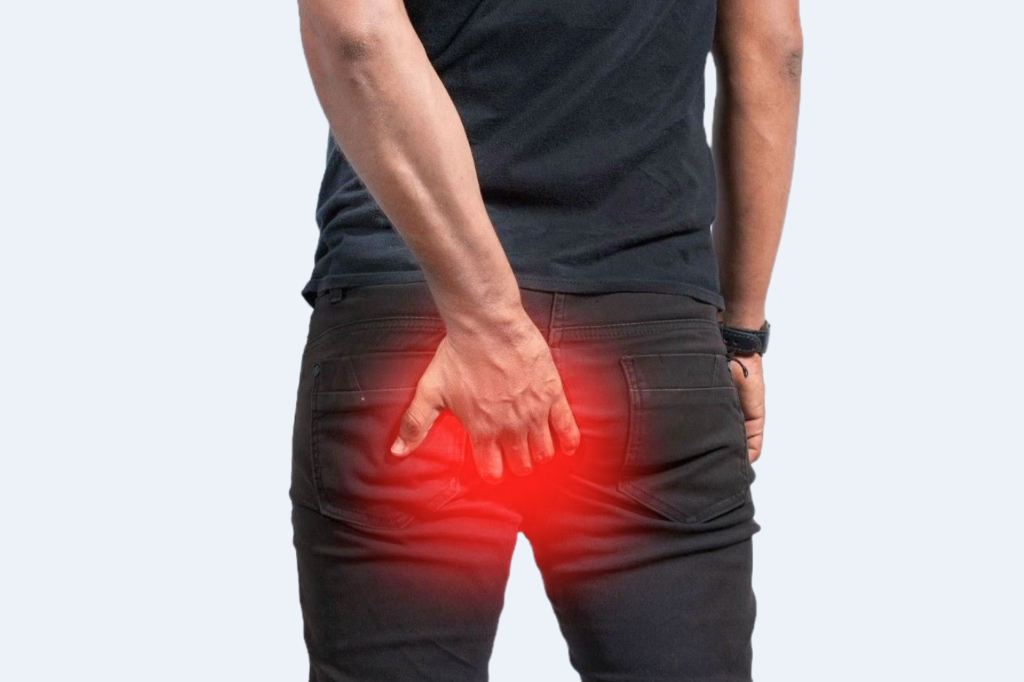Synopsis
Hemorrhoids are a common and often uncomfortable condition that affects millions of people worldwide. These swollen veins in and around the anus can cause pain, itching, and bleeding. If you’ve been dealing with hemorrhoids, it’s essential to understand the causes, symptoms, and effective treatment options. This comprehensive guide will walk you through everything you need to know, from simple home remedies to when you need to seek medical help.
Understanding Hemorrhoids: Causes, Symptoms, and Treatments
What Are Hemorrhoids?
Hemorrhoids are swollen veins in the rectum or anus, similar to varicose veins, but they occur in a very sensitive area. They can be internal (inside the rectum) or external (around the anus). Hemorrhoids are often caused by increased pressure in the lower rectum, typically from straining during bowel movements, pregnancy, or even sitting for prolonged periods.
Common Causes Include:
- Chronic constipation or diarrhea
- Straining during bowel movements
- Sitting for long periods
- Obesity
- Pregnancy
- Aging (which weakens the tissue supporting the veins)
Symptoms of Hemorrhoids:
- Pain or discomfort, especially when sitting or during bowel movements
- Itching around the anus
- Swelling or lumps near the anus
- Bright red blood on toilet paper or in the toilet bowl
Treatment Options:
Most hemorrhoids can be managed with lifestyle changes and at-home remedies. Over-the-counter creams, such as hydrocortisone, and warm sitz baths can help reduce swelling and pain. However, severe or chronic cases might require medical interventions, such as rubber band ligation or, in rare cases, surgery.
Home Remedies for Hemorrhoids Relief: What Works and What Doesn’t
When dealing with hemorrhoids, many people turn to home remedies for relief. While some can be effective, others may not be as helpful. Here’s a breakdown of what works and what doesn’t.
Effective Remedies
- Warm Sitz Baths: Sitting in warm water for 15–20 minutes can help soothe itching and reduce swelling.
- Cold Compresses: Applying ice or cold packs to the affected area for 10–15 minutes can reduce pain and inflammation.
- Fiber-Rich Diet: Eating foods rich in fiber (like fruits, vegetables, and whole grains) helps prevent constipation, reducing the risk of straining during bowel movements.
- Topical Creams or Wipes: Over-the-counter hemorrhoids cream or medicated wipes can help soothe discomfort and reduce swelling.
Ineffective or Risky Remedies
- Herbal Remedies: While some herbal products claim to help, there isn’t enough scientific evidence to support their effectiveness. Always check with your doctor before trying new treatments.
- Excessive Straining: Straining to pass stool can aggravate hemorrhoids, so it’s important to avoid pushing too hard or sitting for too long on the toilet.
When to Seek Medical Help for Hemorrhoids: Signs You Can’t Ignore
In many cases, hemorrhoids can be managed at home with lifestyle changes and over-the-counter treatments. However, there are certain signs that indicate you should seek medical help:
When to See a Doctor:
- Severe Pain or Discomfort: If you’re experiencing intense pain that doesn’t improve with home remedies, a doctor may need to assess the severity of your condition.
- Excessive Bleeding: If you notice large amounts of blood, or if the bleeding doesn’t stop after a bowel movement, seek immediate medical attention.
- Prolonged Symptoms: If your symptoms don’t improve or worsen after a few days of treatment, it may be time for a doctor’s visit.
- Visible Lumps: External hemorrhoids or prolapsed internal hemorrhoids may need medical intervention if they cause persistent pain or bleeding.
A Word From Hegde Hospital
Hemorrhoids are a common yet manageable condition that can significantly impact comfort and quality of life. Understanding their causes and symptoms is the first step toward effective relief. Simple lifestyle adjustments, such as incorporating a fiber-rich diet, practicing good hygiene, and avoiding prolonged straining, can help prevent and alleviate symptoms.
Proven home remedies, including warm sitz baths, cold compresses, and over-the-counter treatments, offer relief for most mild cases. However, persistent, severe, or worsening symptoms—such as excessive bleeding, intense pain, or visible lumps—require medical attention to prevent complications and explore advanced treatments.
Focusing on evidence-based remedies and consulting a healthcare provider when necessary ensures that hemorrhoids are addressed effectively and safely. Early intervention and mindful care can lead to lasting relief and improved well-being.

